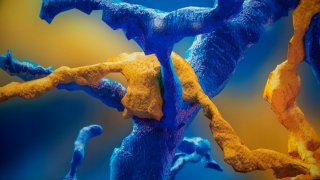 A new Rutgers study suggests that sleep aids may do more than mitigate insomnia: They might also help reduce cravings for those struggling with alcohol and drug addiction. Why? It comes down to a hormone called orexin that stimulates drug and alcohol cravings, more than 10 years of research at the Rutgers Brain Health Institute and peer institutions suggest. Addicts experience constant overproduction of orexin, which motivates continuous use, researchers say.
A new Rutgers study suggests that sleep aids may do more than mitigate insomnia: They might also help reduce cravings for those struggling with alcohol and drug addiction. Why? It comes down to a hormone called orexin that stimulates drug and alcohol cravings, more than 10 years of research at the Rutgers Brain Health Institute and peer institutions suggest. Addicts experience constant overproduction of orexin, which motivates continuous use, researchers say.
Humans naturally produce orexin as a motivation regulator. Levels of it may spike when giving a presentation or taking an exam and then dull when going to sleep. The body’s orexin levels shift dynamically, and there is normally a reserve of excess hormone-producing neurons (neurons are the body’s way of signaling cells to function properly — and part of that regulation process involves generating regulatory hormones). So what if orexin levels could be more controlled? To read the full story.
